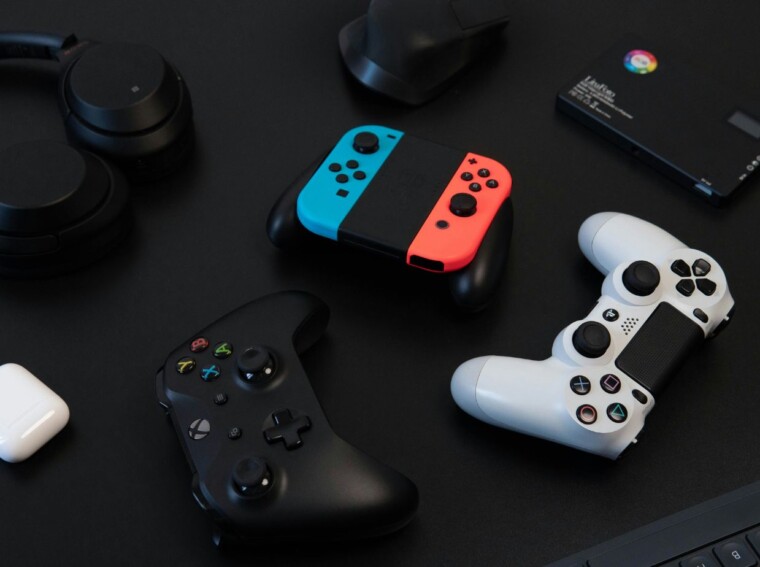In the ever-evolving world of gaming, enthusiasts are faced with a perennial debate: PC vs. console gaming. With the rise of online casino games providing immersive experiences on both platforms, it’s crucial to understand the technical disparities between PC and console hardware.
From processing power to graphical capabilities, each platform offers unique advantages and drawbacks that cater to different gaming preferences. In this blog article, we’ll delve into the performance and hardware differences between PC and console gaming, shedding light on the powerhouse potential of PCs and the plug-and-play convenience of consoles.
Processing Power
One of the most significant distinctions between PC and console gaming lies in processing power. PCs typically boast more powerful processors, offering superior performance and faster load times compared to consoles.
High-end gaming PCs are equipped with multi-core processors that can handle demanding tasks such as rendering high-resolution graphics and running multiple applications simultaneously. In contrast, consoles are designed with custom-built processors optimized for gaming performance, but they often lag behind PCs in terms of raw processing power.
This difference in processing power can impact gaming performance, with PCs offering smoother frame rates and better overall responsiveness.
Graphical Capabilities
Another key factor to consider is graphical capabilities. PCs are known for their ability to deliver stunning visuals and lifelike graphics, thanks to powerful graphics cards and advanced rendering technologies. With support for higher resolutions, frame rates, and graphical effects, gaming PCs can provide an immersive gaming experience that rivals that of high-end consoles.
In comparison, consoles are limited by their hardware specifications, which may result in lower graphical fidelity and performance compared to PCs.

While consoles have made significant strides in recent years, they still may not match the graphical prowess of a well-equipped gaming PC.
Customization and Upgradability
One of the major advantages of PC gaming is the ability to customize and upgrade hardware components according to individual preferences and budgets. Gaming PCs can be tailored to meet specific performance requirements, with options to upgrade components such as processors, graphics cards, and memory modules as needed.
This flexibility allows gamers to stay at the cutting edge of technology and adapt to new gaming trends and advancements. In contrast, consoles are typically closed systems with limited upgrade options, as hardware components are integrated into a single unit.
While some consoles offer minor hardware revisions or storage expansion options, they lack the extensive customization and upgradability of gaming PCs.
Cost and Accessibility
When it comes to cost and accessibility, consoles have a distinct advantage over gaming PCs. Consoles are generally more affordable upfront, with lower entry costs compared to high-end gaming PCs.
Additionally, consoles offer a plug-and-play experience, with pre-configured hardware and user-friendly interfaces that make gaming accessible to users of all skill levels. This simplicity and ease of use make consoles an attractive option for casual gamers and those looking for a hassle-free gaming experience.

On the other hand, gaming PCs require a larger initial investment and may require additional setup and configuration, but they offer greater flexibility and customization options for enthusiasts willing to invest in their gaming setup.
Game Library and Compatibility
Finally, the availability of games and compatibility with gaming platforms is an important consideration for gamers. Consoles typically have exclusive titles and partnerships with game developers, offering a curated selection of games optimized for their hardware.
However, gaming PCs have access to a vast library of games from various publishers and distribution platforms, including online casino games, indie titles, and classic games from previous generations.
Additionally, gaming PCs offer backward compatibility with older games and the ability to run emulators and virtual machines, further expanding their gaming repertoire.
Conclusion
In conclusion, the choice between PC and console gaming ultimately boils down to personal preference and priorities. While gaming PCs offer unmatched performance and customization options, consoles provide a plug-and-play experience that is accessible and convenient for casual gamers.
Whether you prioritize raw power and graphical fidelity or simplicity and ease of use, both platforms offer unique advantages and drawbacks that cater to different gaming preferences. By understanding the performance and hardware differences between PC and console gaming, gamers can make informed decisions and create an optimal gaming experience tailored to their needs and preferences.


